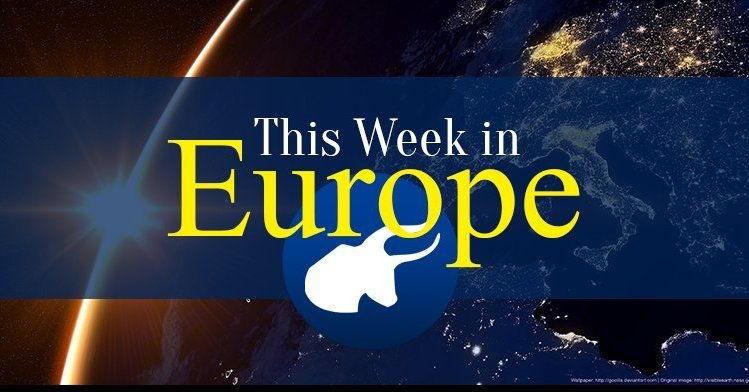Audi CEO arrested over emissions
On Monday, Rupert Stadler, the CEO of the German company Audi, was detained in connection to the investigation into emissions cheating, a scandal that was dubbed “Dieselgate” in 2015. Volkswagen, the parent-company of Audi, was caught installing emissions cheating software in millions of cars worldwide. This week, Audi offices and facilities were raided as part of the same probe. Stadler joined the company in 1990 and became CEO in 2007. The company refused to comment.
Italy’s Salvini demands Roma census
Italian Interior Minister and leader of the far-right League, Matteo Salvini, announced this week a plan to count the members of the Roma community living in the country and subsequently deport those without legal status. The Italian government plans to do the counting through a census applied to the Roma community. “The Italians and their safety first”, tweeted Salvini. Criticism did not delay, coming from the opposition, civil society and even from the government itself. Coalition partner and leader of the 5 Star Movement, Luigi Di Maio, argued that Salvini’s ethnicity-based census would be unconstitutional. Prime Minister Giuseppe Conte, in turn, deemed that such a census would be “clearly discriminatory.” Finally, EU Commission spokesman Alexander Winterstein stated that no European citizen can be deported based on ethnic criteria.
Also this week, Italy announced that it will be seizing two ships which have been rescuing migrants in the Mediterranean sea. The two ships will be placed under investigation and kept in ports.
Hungarian parliament passes anti-immigration laws
On Wednesday, the Hungarian parliament passed the so-called “Stop Soros” plan, which includes a ban on helping migrants. Under the law, NGOs or activists who assist migrants with finding asylum can face up to a year in jail for “facilitating illegal immigration.” The legislation bears the name of financier George Soros, accused by PM Viktor Orban for an entire array of acts such as encouraging Muslim migration to Hungary. Orban’s use of the Soros scarecrow is reminiscent of Turkey’s Erdogan and his similar obsession for the preacher Fethullah Gulen. The United Nations refugee agency urged Hungary to throw out the bill. Aside from the new legislation, the parliament also passed a constitutional amendment creating a new court system, which critics expect to be stacked with Orban supporters. Both acts risk causing the infringement procedure from the EU.
Most influential Romanian politician sentenced to jail
This Thursday, Romania’s High Court sentenced Liviu Dragnea, leader of Romania’s ruling Social Democratic Party and “shadow Prime Minister”, to 3 and a half years in jail. However, Dragnea is expected to appeal and delay the final sentencing. The sentence relates to his time as local council leader, when he used public money to pay two people who in reality worked exclusively for his party. Dragnea already had a 2-year suspended sentence for his attempt to rig a 2012 referendum, but that - or even the present sentence - does not stop him from still being president of the Chamber of Deputies. Moreover, the Romanian social democrats, including the Interior Minister and the Prime Minister, rallied around their leader and issued condemnations of the High court for “politicizing” the process.
Earlier on Monday, the Parliament of Romania also approved amendments to the country’s criminal procedure which critics say will weaken the power of prosecutors to probe high-level corruption. Designed by the ruling Social Democrats, the new codes make it so wiretapping not connected to the deed under investigation will be ignored, investigations themselves will be limited to one year and appeal courts are barred from overturning the initial decision of a lower court unless new evidence is presented. After Dragnea’s sentence, however, the leader himself appeared on TV and argued that new criminal laws will be enforced by government ordinance for expediency.
EU extends sanctions on Russia
On Monday, foreign ministers of the European Union extended the economic sanctions applied to Russia after its 2014 annexation of Crimea. The measures apply to people and companies based in the EU involved in tourism or trade, and will apply until June 23rd, 2019. They include a ban on imports from Crimea and Sevastopol and a ban on European citizens or companies investing in Crimean real estate or companies. The Council of the European Union stated that “the Eu does not recognize and continues to condemn this violation of international law”, remaining “firmly committed to Ukraine’s sovereignty and territorial integrity.”
Eurogroup reaches Greek debt relief deal
On Friday, after 8 years, the countries of the eurozone removed the last political hurdle in the way to Greece’s rescue programme. The country completed all the reforms of its bailout programme and was offered more than 276 billion euro in financial assistance since 2010. At present, Greece’s debt amounts to 178% of its GDP, with most of the money it owes coming from euro area countries or the European Stability Mechanism. The final deal comes after intense negotiation between the International Monetary Fund and Germany, who was shown to have earned 2.9 billion euro from the Greek crisis between 2010 and 2017. Pierre Moscovici, commissioner of Economic Affairs, dubbed the moment the “end of the existential crisis of the euro.”
US - EU trade war reaches the car industry
On Friday, US president Donald Trump threatened to impose a 20% import tariff on all cars manufactured in the EU. The threat represents a new stage in the trade war initiated by the American president, after tariffs imposed by the US were answered by the European Union with similar tariffs - on bourbon, jeans and motorcycles - which came into effect on the same day. “Build them [the cars] here!” commented Donald Trump. Stock markets declined as a result of the news, as the US threatened more tariffs on China as well.
EU holds immigration summit, Visegrad not invited
This Sunday, European Commission President Jean-Claude Juncker held an emergency summit at the request of Germany, whose internal struggles require a new immigration and border policy. The summit thus included leaders from Germany, Italy, Greece, France, Malta, Spain, Bulgaria, Austria, the Netherlands and Belgium, and left out countries such as Hungary, Poland, Slovakia and the Czech Republic - the Visegrad Four. Famous for their anti-migration views, the governments of the four countries were not invited, prompting complaints from Hungarian and Polish diplomats. Speaking on behalf of the group’s Prime Ministers, Hungary’s Viktor Orban stated that the Visegrad countries decided to boycott the summit - even though they were not invited.


Follow the comments: |
|
